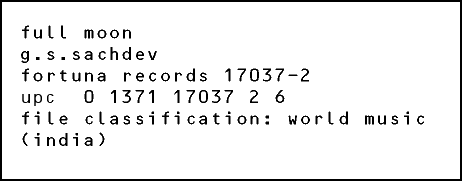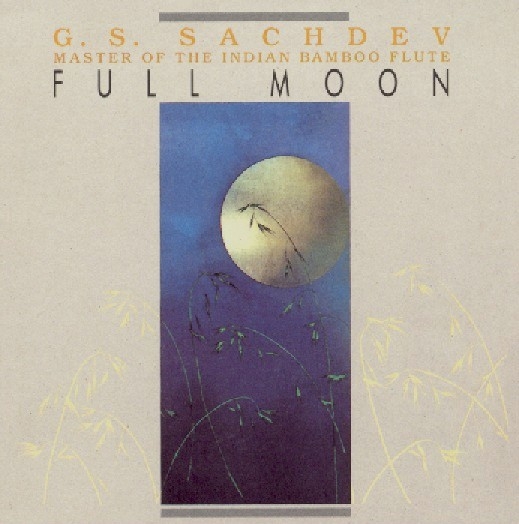 |
||||||||||||
 
Mythologie, Spiritualität und Musik sind in der indischen Kultur eine Einheit. In den ältesten Schriften, den Veden, gilt der heilige Klang OM als Symbol für Brahman, für das Allumfassende. Die Rishis (Seher) singen OM, spüren die Essenz im Inneren und verbinden sich so mit dem Höchsten. Geht man heute durch eine Strasse in Bombay oder Varanasi, kann man aus einem Hindutempel die dreitönigen, rhythmisch skandierten vedischen Gesänge, aus dem Plattenladen einen Raga von Ravi Shankar, aus einem vorbeifahrenden Auto Bollywood-Sentimentals und auf dem Fußgängerweg neben einer Abfall fressenden Kuh den Bettler auf der einsaitigen Veena hören. Für die meisten Inder ist das alles immer noch heilig - Gott singt. Zugleich ist kaum eine Musikerausbildung strenger als die zum Ragavirtuosen. Wer öffentlich einen Raga aufführt, kommt in der Regel aus einer alten Musikerfamilie, ist wenigstens vom 6. Lebensjahr an bei einem Guru (oft dem eigenen Vater oder Großvater) in die Lehre gegangen und hat 10 - 20 Jahre acht Stunden täglich geübt, auch geistig und spirituell. Wer indische Musiker live erlebt hat, wird sich vielleicht gewundert haben, wie entspannt und lustig die dabei sind. Wer bisher Vollmond mit Werwölfen und Flöte mit Blockflöte assoziierte, wird hier aus dem Staunen nicht mehr herauskommen oder abschalten. So verlockend winken die zunächst kurzen, immer wieder abbrechenden melodischen Bögen ins Dickicht der Nacht. Irgendwo dort im Dunklen wartet die lang Ersehnte. Krishnas Flöte zeigt den Weg. Sachdev sei Dank! "...haunting performance...the sound of his flute rings with an indescribable purity" The New York Times "...Sachdev is one of those great artists you don't know how to describe because there are hardly any words. 'Marvelous' won't quite do. His playing defines what simplicity and beauty are." San Francisco Chronicle "...a model of imagination that never seemed forced." El Pais, Madrid "...an instinct for perfection." Times of India "We are fortunate to have such a fine musician as Sachdev in our presence." George Harrison "I feel happy to see him blossom into a wonderful flutist. I admire his ability to touch the spirit of the raga he performs and also to move the listeners emotionally with his pure and classical approach." Ravi Shankar the projectFull Moon presents ragas of deepening night, played with passionate detachment by the Indian bamboo flute master, G.S. Sachdev. Each raga on Full Moon contains the essence of the moment. Evening Prayer, traditionally performed at sunset, expresses peace and devotion. Introspection is a serious and inward piece played at mid-evening. Full Moon, traditionally performed at midnight, greets the risen moon with a renewed vigor reflecting a mood of romance, fulfillment, and joy. Accompanied only by the sound of the tanpura and swarpeti, Sachdev improvises fluently within the classical form of the ragas.the artistGurbachan Singh Sachdev has gained international recognition as master of the bansuri (Indian bamboo flute), performing in India, Europe, and the United States. Initially a protégé of Vijay Raghav Rao, Sachdev continued his studies with Ravi Shankar, and later with Ali Akbar Kahn. He also holds a degree in music from Gandharav Mandal University in Bombay. One of the world's foremost exponents of mood and feeling, he brings his own improvisations to the ancient classical music of India yet preserves the purity of the classical idiom."I also admire his ability to touch the spirit of the raga...and
also to move the listeners citeotionally with his pure and classical
approach." "Sachdev is one of those great artists you don't know how to describe because there are hardly any words. Marvelous won't quite do. His playing defines what simplicity and beauty are." (San Francisco Chronicle). biographytracklist
|
||||||||||||
|
|
||||||||||||
 |


